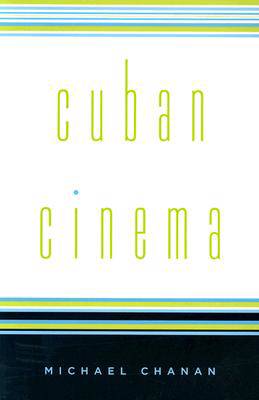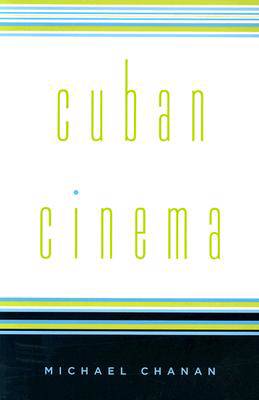
- Retrait gratuit dans votre magasin Club
- 7.000.000 titres dans notre catalogue
- Payer en toute sécurité
- Toujours un magasin près de chez vous
- Retrait gratuit dans votre magasin Club
- 7.000.000 titres dans notre catalogue
- Payer en toute sécurité
- Toujours un magasin près de chez vous
32,45 €
+ 64 points
Description
The earliest films made in Cuba--newsreel footage of the Cuban-Spanish-American War--date from the end of the nineteenth century, but Cuba cannot be said to have had an indigenous film industry before the revolution of 1959. The melodramas, musicals, and comedies made until then reflected Hollywood's--and the United States's--cultural domination of the island, but the revolution precipitated urgent debates about the role of cinema in a socialist country and the kinds of films best suited to the needs of the people and their rulers. Among the feature films, documentaries, and short subjects made in accordance with revolutionary principles are celebrated works by Tomás Gutiérrez Alea, Humberto Solás, and other filmmakers who have had a profound influence on both Latin American and world cinema.Michael Chanan provides a comprehensive, authoritative, and absorbing account of Cuban cinema both before and after the revolution, deftly setting individual films and filmmakers within the larger framework of Cuba's social, political, and cultural history. First published as The Cuban Image in 1984 to wide acclaim, Cuban Cinema now appears in a new, expanded edition that updates Chanan's discussion to the beginning of the twenty-first century. New chapters address ongoing concerns about freedom of expression; Havana's restored importance within the Latin American film industry through the Havana Film Festival, before state support for filmmakers dwindled in the economic collapse that followed the fall of the Soviet Union; Cuban cinema's place within the globalized cultural market; and the changing audience for Cuban films. The only book-length study of Cuban cinema written in English, this indispensable work on one of the world's most vital national cinemas offers a unique perspective on the Cuban experience in the twentieth century.Michael Chanan is a documentary filmmaker and professor of cultural and media studies at the University of the West of England in Bristol.
Spécifications
Parties prenantes
- Auteur(s) :
- Editeur:
Contenu
- Nombre de pages :
- 538
- Langue:
- Anglais
- Collection :
- Tome:
- n° 14
Caractéristiques
- EAN:
- 9780816634248
- Date de parution :
- 11-02-04
- Format:
- Livre broché
- Format numérique:
- Trade paperback (VS)
- Dimensions :
- 150 mm x 228 mm
- Poids :
- 716 g







